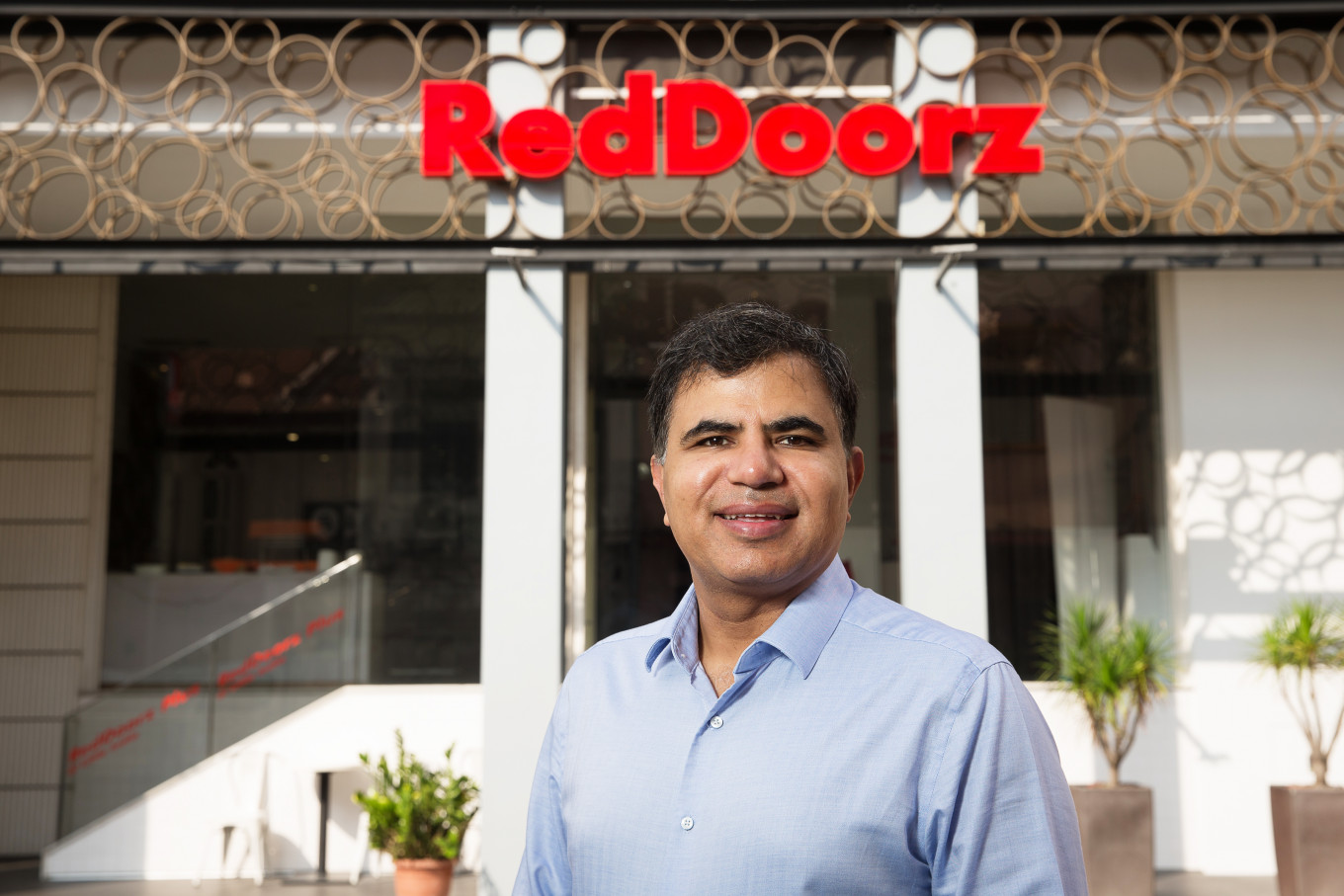RedDoorz CEO says it’s time to get out again
Hotel booking platform RedDoorz has seen some recovery in occupancy rates and revenue this year, and CEO Amit Saberwal expects further improvement as people get out to travel again.
Change text size
Gift Premium Articles
to Anyone

T
he coronavirus pandemic has hit tourism hard, but as the vaccination rate rises and case numbers drop, people are regaining confidence about travelling, at least to domestic destinations.
The Tourism and Creative Economy Ministry aims to focus on local travelers for the tourism recovery as foreign arrivals dropped 69 percent in the January-to-August period over the same period of last year.
RedDoorz, Southeast Asia’s leading budget hotel chain, has seen occupancy rates grow back to pre-pandemic levels, especially in its biggest market, Indonesia. The Jakarta Post’s Eisya A. Eloksari spoke with the company’s CEO, Amit Saberwal, on Oct. 22 about the future of tourism.
Question: Has RedDoorz seen signs of a recovery in tourism?
Answer: Yes, during September and October, when the COVID-19 wave started coming down and people became more confident, our revenue in Indonesia was more than 100 percent of the pre-pandemic level.
The occupancy rate is around 70 percent of the pre-pandemic level, but it is uneven. For example, Jakarta and Bandung are doing well, but Bali and Lombok are not. I think the first quarter of next year will be the time for a significant recovery.
Occupancy in our Philippines market is also doing well because of domestic travel and the quarantine business from Filipinos returning from overseas, but a long-term recovery will happen when the border is open. Similarly, our Singapore business is also very connected with the quarantine policy, and lastly, our Vietnam business was decimated by the prolonged lockdown, so we have to build from the start completely.
What did you do to return to pre-pandemic revenue?
We have spent the last 18 months sharpening the axe by doing a lot of digitization, adding new hotels and new brands, as well as adding new revenue streams. We have launched KoolKost, a rooming house service; we also launched the SANS Hotel brand and other new brands to come.
In terms of new revenue, we started offering insurance to our customers, rented out our hotels’ kitchens and installed vending machines and lockers. These are small money streams that add up for us and our hotels.
We have been trying to keep the company in shape, so that as soon as there is a tailwind of recovery, we are the first to propel to the next level. We are also operating in an environment that is less competitive, as some of the small players have shut down. At the same time, hotel owners feel the need for partnerships and digitization, and that is exactly what we’re doing.
Bali has been reopened to some international travelers; have you prepared anything for this occasion?
Bali is not a big market for us, to be honest. We believe in the opportunity of Bali, but we believe the rest of Indonesia is more important for us. RedDoorz customers are 96 percent domestic travelers so Bali plays a smaller role.
So, for us international tourist arrivals do not make so much difference; but we understand the sentiment. When tourists come to Bali, Batam and Bintan, things will be looking better, people will be more confident to travel within the country.
What do you think about government rules on hotel operations and the quarantine policy?
In Indonesia, I think the cleanliness, health, safety and environment (CHSE) certification is a really good initiative, because it gives customers peace of mind.
While big five-star hotels could easily relate to these kinds of things, the concept of checking people’s temperature and whatnot was an alien concept to small hotels, so there was an educational angle to it. I think these practices should continue even after the pandemic.
I think public health has to be balanced with tourism, there is no trade-off. I think five days of quarantine for long-haul travelers to Bali is not so much of a hardship, but I believe it is only a matter of time until things will start getting better in Indonesia.
Singapore has a vaccinated travel lane policy, and Thailand has just announced a similar scheme. Batam and Bintan will pick up from Singapore’s business travel once the quarantine policy ends.
What is your take on the future of tourism?
The future of travel is bright. Domestic tourism is definitely going to make a big jump, because people are familiar with the area and can easily go back home when there is a policy change.
I think the business class corporate travel will take a little longer to recover, because it depends on the pace at which the government will open borders and on when companies are more comfortable to have face-to-face meetings.
The concept of hospitality has changed. People want a seamless, touchless experience from hotel booking to check-out. We are also working on allowing more things to be done in our app, including moving toward touchless door locks. So, those trends will deepen.
Once people have more confidence and things start really settling for good, we will see a surge in international travel. We believe that it is time for us to embrace tourism again in a safe and effective manner. It is time to get out again.









